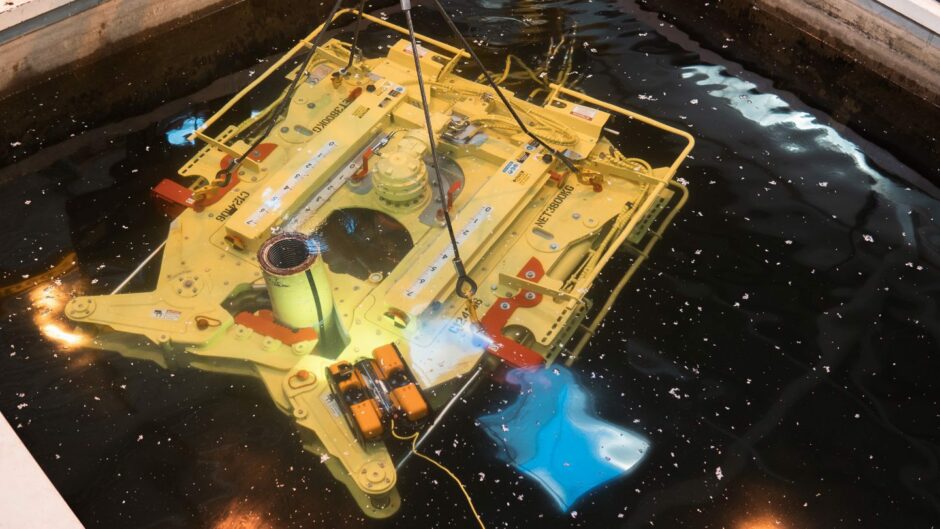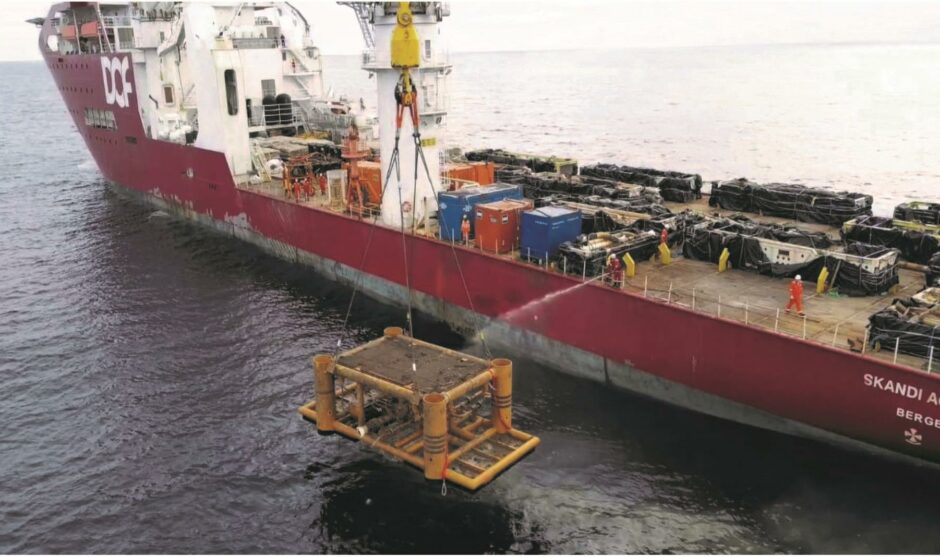
Companies developing “ground-breaking technologies” for North Sea decommissioning are up against it to deliver their solutions in time.
Decommissioning manager at the North Sea Transition Authority (NSTA), Alasdair Thomas says there is a “huge opportunity” for firms to find methods for reducing the cost of removing assets and plugging wells.
But he emphasised that new technologies need to come to market “in the next five years” if they are going to make a difference, especially on well plugging and abandonment (P&A).
In the next decade more than £20 billion will be shelled out on decommissioning in the North Sea, according to latest estimates from the NSTA.
Hailed as a “massive opportunity” for UK suppliers, it will also be a big challenge and the pressure is on industry to reduce the overall bill as far as possible.
Mr Thomas said: “One area that we don’t see a huge movement on is revolutionary technological breakthroughs on well P&A. There aren’t the game changing technologies coming through, even though that they might be commercially available.
“I know the Net Zero Technology Centre is working with on a number of operator funded initiatives looking at how to advance and drive down the cost of well P&A. I personally believe there’s a huge opportunity there to take that forward at pace, and that would that would have revolutionary effect on the overall cost of decommissioning.
“But, I would say that the opportunity for technology is becoming really pressing. We need ground-breaking technology – like we’ve seen in the heavy-lift space – to affect the change and the cost of decommissioning. It really needs to occur, in my view, in the next five years so that we can genuinely take advantage of it.”
Mr Thomas was speaking on and Offshore Energies UK (OEUK) webinar held to mark the NSTA’s latest decommissioning cost estimate report.
According to the study, the total bill for shutting down the North Sea has risen to £40bn in recent months, the result of inflation and competition from other sectors.
Despite the swell the regulator is still confident that industry can achieve its goal of reducing the cost to £33.3bn by 2028.
It will require new and improved methods though, particularly given that many of the quick wins have already been achieved.
Chief executive of energy services provider Three60 Energy Walter Thain, who was one of the panellists on the OEUK event, said: “It wouldn’t be surprising if research and development (R&D) budgets across companies got slashed since 2020.
“I’m not sure if you’re just starting on that journey know how quickly it will take technology to take a hold. Like everything across the supply chain there needs to be that commitment. Generally I think that investment from the supply chain will come, but it needs to be backed by some level of security of service provision.”
Recommended for you


 © Supplied by Spirit Energy
© Supplied by Spirit Energy © Supplied by Big Partnership
© Supplied by Big Partnership